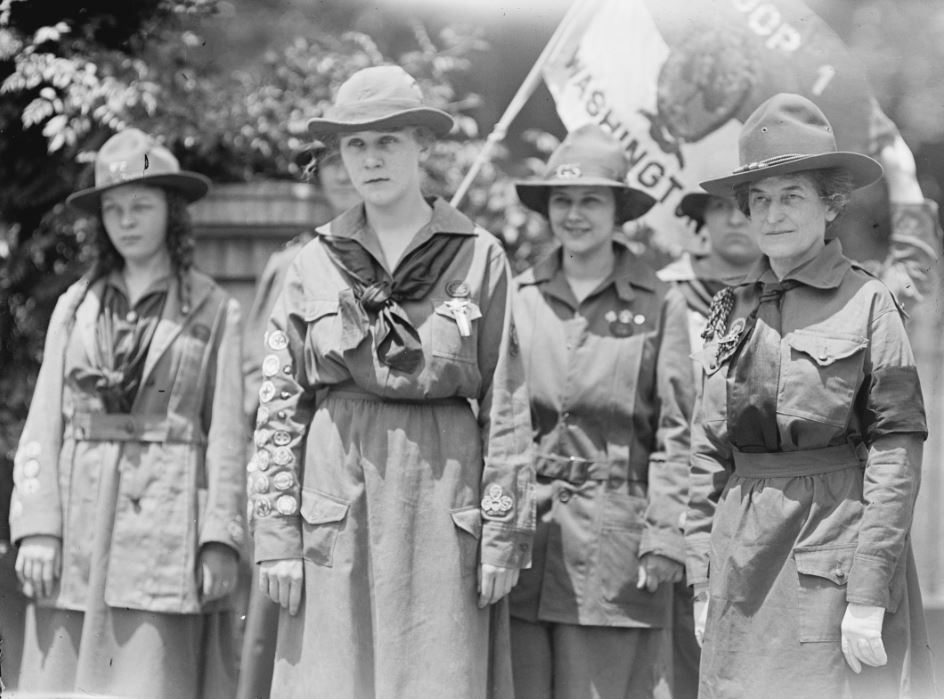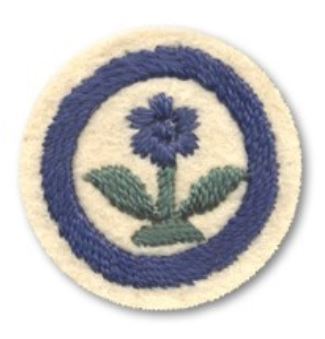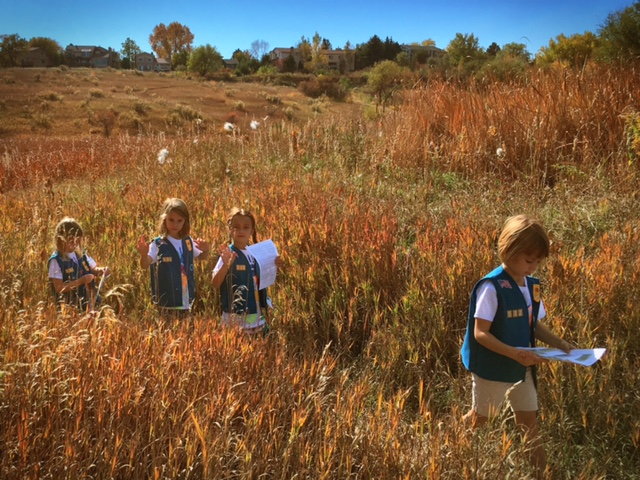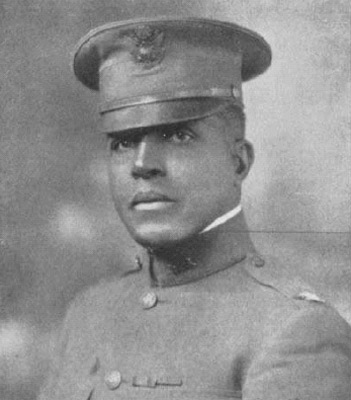Ask most people about Girl Scouts, and the answer will probably be, “Cookies.” But the organization is, of course, much broader and more important to the lives of girls than just Samoas and Tagalongs. Just like the Boy Scouts, the Girl Scout movement has had an incredible influence on young girls—and on the environment we value so much.
The idea began through the efforts of Juliette Gordon Low. Low was born in Savannah, Georgia in 1860, child of a prominent and wealthy family (died 1927). She was well educated and travelled widely. She met her future husband, the also wealthy William Low, while traveling in England. They were married when Low was 26 and kept homes in both London and Savannah. The marriage proved unhappy and childless, and Low was divorcing him when he died in 1905.

While living in London, she became friends with Robert Baden-Powell, the founder of the Boy Scouts (learn more about Baden-Powell here). Low liked the scouting idea and realized that a companion program for girls was needed. She led several troops of Girl Guides, as they were called, in England. When she moved back to Savannah, she decided a U.S.-based program was needed, telling a cousin, “I’ve got something for the girls of Savannah, and all of America, and all the world, and we’re going to start it tonight!”
That night, March 12, 1912, she formed the first Girl Scout troop with 18 girls as members. Low was correct—this was something that was needed and would grow. From those 18 original scouts have come more than 50 million Girl Scout alumnae. Currently about 2.5 million girls and leaders are involved in the U.S, and troops operate in 92 countries.

Right from the start, Juliette Gordon Low wanted girls to be outdoors, actively enjoying, learning about, and taking care of nature. This was part of the Progressive Era in the U.S., offering new opportunities and perspectives about society and life. Low wanted girls to be expert at homemaking, given that most of them would serve that role, but she also wanted them to have a broader context for that life—and the natural environment could provide that context. So, from the beginning, she led girl scouts on outdoor endeavors. An original Girl Scout badge was the “Naturalist,” and the original Girl Scout Handbook said, “For in this United States of ours we have cut down too many trees and our forests are fast following the buffalo…so let us plant trees now.”
From that origin, environmental stewardship has become a dominant program for Girl Scouts. First-lady Lou Hoover, a fervent outdoorswoman, took over from Low as head of the Girl Scouts in 1920, elevating the environmental program even higher. Nature activities were officially made part of the program in 1924, through the efforts of the organization’s naturalist, Dr. Bertha Chapman Cady. In 1944, the girl scouts began creating wildlife conservation areas, named in honor of Hoover. Today, 66 sanctuaries protect more than 9,000 acres.

In the 1970s, the Girl Scouts created a national Eco-Action program, building on the emerging environmental movement of the times. The number and variety of environmental stewardship projects continues to grow and evolve, tying together leadership, science and environmental skills. But it all goes back to a 51-year-old widow who decided to make the world a better place by spending her time and money for the benefit of every G.I.R.L.—go-getter, innovator, risk-taker, leader.
References:
Encyclopedia Britannica. Juliette Gordon Low, American Leader. Available at: https://www.britannica.com/biography/Juliette-Gordon-Low. Accessed March 7, 2019.
Gambino, Megan. 2012. The Very First Troop Leader. Smithsonian, March 7, 2012. Available at: https://www.smithsonianmag.com/history/the-very-first-troop-leader-116645976/. Accessed March 7, 2019.
Girl Scouts of America. The Girl Scout Difference. Available at: https://www.girlscouts.org/en/about-girl-scouts/the-girl-scout-difference.html. Accessed March 7, 2019.
Girl Scouts of America. Juliette Gordon Low, A Brief Biography. Available at: https://www.girlscouts.org/en/about-girl-scouts/our-history/juliette-gordon-low.html. Accessed March 7, 2019.
Girl Scouts of America. Girl Scouts’ Powerful Legacy of Environmental Stewardship. Available at: https://www.girlscouts.org/en/about-girl-scouts/girl-scouts-and-the-environment/stewardship.html. Accessed March 7, 2019.

